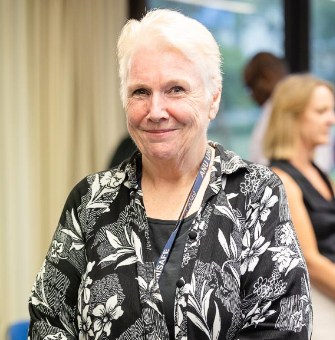
2024 eResearch Australasia Conference
Go to partner eventabout 2024 eResearch Australasia Conference
On 21 February 2023 we released the Research Data Management Framework for Institutions.
Representing a huge collaboration across 25 Australian universities, the Framework brings together knowledge from hundreds of multidisciplinary experts. Contributors created a national approach for institutional research data management (RDM). The approaches and ideas have been tested by institutions across the country through dedicated projects and a passionate community of practice.
The Framework was officially launched at in-person events in Canberra, Brisbane, Toowoomba, Sydney, Melbourne and Adelaide and over 400 people registered to join the live broadcast.
Speakers at the launch reflected the goodwill and enthusiasm involved in creating and testing the Framework, describing the process as “open, collaborative and fun”. They also showcased the ways the Framework has been (and can be) applied to institutions.
Watch the recording of the launch event:
The official launch event included the following speakers:
The ARDC’s Institutional Underpinnings program began in February 2021 with the goal to coordinate research data management across Australian universities. All Australian universities were invited to participate. In Phase 1 of the Institutional Underpinnings program, 25 Australian universities came together to jointly develop the first draft of the framework.
Through a co-design process, the participants identified 19 priority elements the framework should cover. Those ideas were prioritised to 9 key elements to work on first. The Framework report includes recommendations and calls to action. The framework is intended specifically for Australian universities to use but may be useful to other research institutions. It provides an institutional-level perspective and was informed by key stakeholders across relevant business units at each university.
The Institutional Underpinnings program has been an amazing achievement. We’ve had 25 universities with multiple people from all over the universities genuinely come together and share ideas, all treating each other with respect, all exploring issues that are complex.
There was never a time when we were looking at easy issues. The universities also operate in a very complex environment, across the states and territories and nationally. We brought all of that together, in an amazing way.
Thanks very much to the staff of the ARDC for supporting us and keeping us on track. And I still can’t believe we had months and months of fortnightly meetings and everyone came, it was a real sign that improving research data support is something from our hearts, not just from our positions in the universities. And the end result is just remarkable and will live on as we meet all the changes in the infrastructure around us and think of new opportunities to continue to work together. It’s been a real privilege for me to be involved.
Roxanne Missingham OAM, University Librarian (Chief Scholarly Information Officer), Australian National University

Photo credit: Ben Appleton / ARDC
We asked a few people at the Canberra launch event at the Australian National University what they think about the framework and the broader approach of the Institutional Underpinnings program. Here’s what they said:
It’s nice to see the framework finalised after all the work in the background. The collaboration for this project has been really good. Because, I think, all 25 institutions had a common goal.
The Institutional Underpinnings program is very important, because it’s all about open data and sharing of knowledge. So we all can progressively get better. In terms of collaboration, everyone’s been really open to share their challenges and what worked for them or didn’t. There’s a really good community spirit.
Anesh Nair, Manager of Research Ethics, Integrity and eResearch at University of Canberra

It’s really exciting seeing the way that the RDM space has evolved and the collaborative effort that’s gone in to produce this report. It gives a lot of guidance and information and advice.
I think that’s going to be really valuable in terms of advocacy, not only for the importance of research data management but the practical steps to implement to move this space forward.
Jo Croucher, Research Data Management Specialist, NCI Australia

My work is around building up a strategy for research infrastructures so Research Data Management is a very important part of it and a very important capability at ANU. We love to see this kind of general guidance, provided through the RDM Framework for Institutions, to help us to streamline and unify our practices in RDM.
Teng Pan, Project Officer – Research Initiatives and Infrastructure, Australian National University

Photo credit: Ben Appleton / ARDC
Although the report looks like a final product, the framework is already evolving and will continue to evolve over time. So far 31 universities have signed on to expand the RDM framework. Other institutions are encouraged to join the project. Learn more about the Institutional Underpinnings RDM Network.
Download the Research Data Management Framework for Institutions.
The ARDC is funded through the National Collaborative Research Infrastructure Strategy (NCRIS) to support national digital research infrastructure for Australian researchers.